Product Detail
Product NameThymidylate Synthase Rabbit mAb
Clone No.JM33-20
Host SpeciesRecombinant Rabbit
Clonality Monoclonal
PurificationProA affinity purified
ApplicationsWB, IHC, IP, FC
Species ReactivityHu, Ms, Rt
Immunogen Descrecombinant protein
ConjugateUnconjugated
Other Namesd TMP synthase antibody
EC 2.1.1.45 antibody
HsT422 antibody
MGC88736 antibody
OTTHUMP00000162195 antibody
Thymidylate synthase antibody
Thymidylate synthetase antibody
TMS antibody
TS antibody
TSase antibody
Tyms antibody
TYMS protein antibody
Tyms thymidylate synthetase antibody
TYSY_HUMAN antibody
Accession NoSwiss-Prot#:P04818
Uniprot
P04818
Gene ID
7298;
Calculated MW36 kDa
Formulation1*TBS (pH7.4), 1%BSA, 40%Glycerol. Preservative: 0.05% Sodium Azide.
StorageStore at -20˚C
Application Details
WB: 1:500-1:2,000
IHC: 1:50-1:200
FC: 1:50-1:100
Western blot analysis of Thymidylate Synthase on different cell lysate using anti-Thymidylate Synthase antibody at 1/1,000 dilution.
Positive control��
Lane1: Hela
Lane2: Jurkat
Lane3: Raji
Lane4: Mouse testes
Lane5: Mouse brain
Lane6: Mouse spleen
Immunohistochemical analysis of paraffin-embedded mouse colon tissue using anti-Thymidylate Synthase antibody. Counter stained with hematoxylin.
Immunohistochemical analysis of paraffin-embedded human tonsil tissue using anti-Thymidylate Synthase antibody. Counter stained with hematoxylin.
Immunohistochemical analysis of paraffin-embedded rat bone tissue using anti-Thymidylate Synthase antibody. Counter stained with hematoxylin.
Flow cytometric analysis of Hela cells with Thymidylate Synthase antibody at 1/100 dilution (red) compared with an unlabelled control (cells without incubation with primary antibody; black).
Thymidylate synthase (TS), also designated TYMS, TMS, TSase and HsT422, uses 5,10-methylenetetrahydrofolate (methylene-THF) as a cofactor in the synthesis of 2'-deoxythymidine-5'-monophosphate (dTMP), an essential precursor for DNA biosynthesis. TS is an RNA-binding protein that can interact with its own mRNA. The TS/mRNA ribonucleoprotein complex can also associate with a number of other cellular mRNAs, including those corresponding to the p53 tumor suppressor gene and the Myc family of transcription factors. Inhibition of DNA replication and cell death resulting from thymidine depletion occurs when TS enzyme activity is inhibited with substrate or cofactor analogs, making the TS enzyme an important target for chemotherapy. Cancer cells are sensitive to thymidine depletion, as they multiply rapidly.
If you have published an article using product 49618, please notify us so that we can cite your literature.


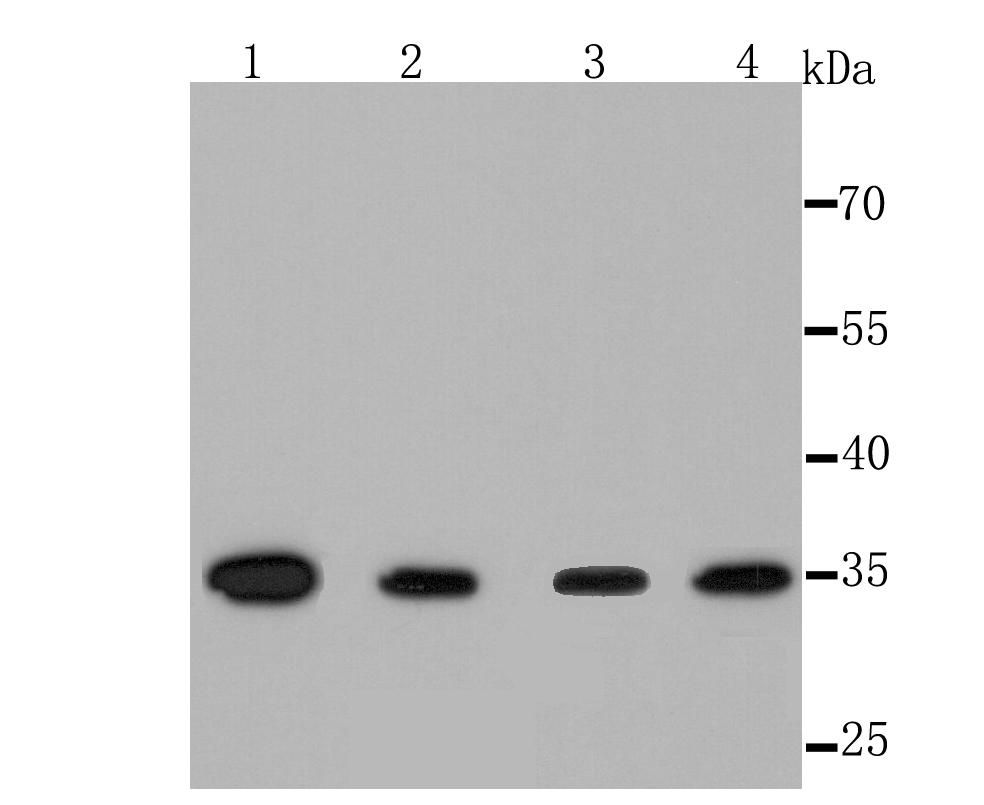
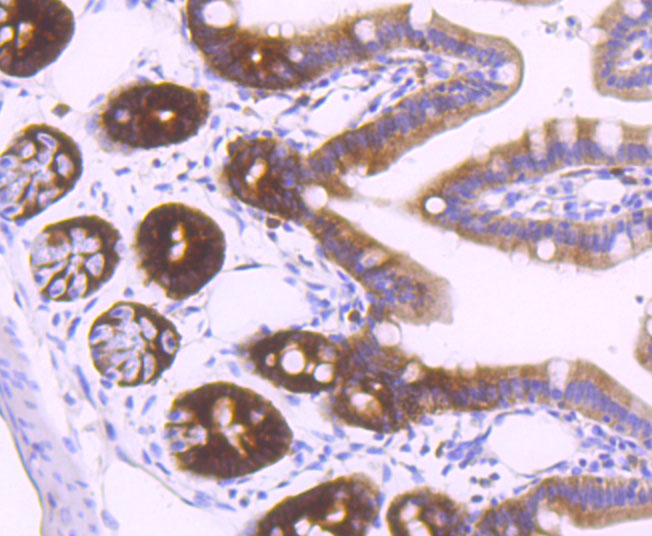
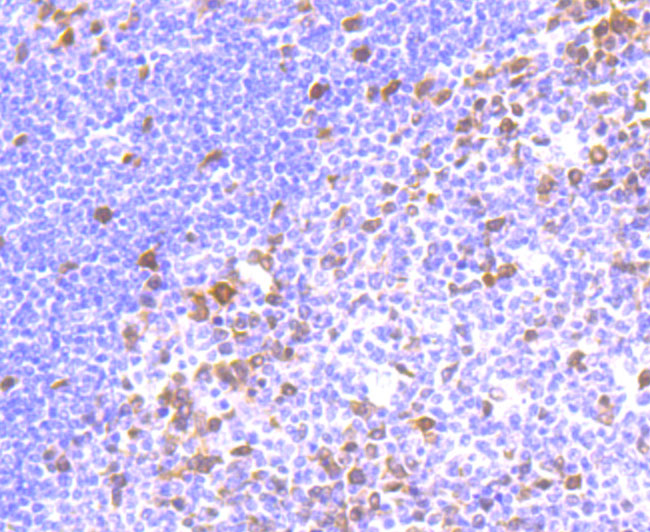
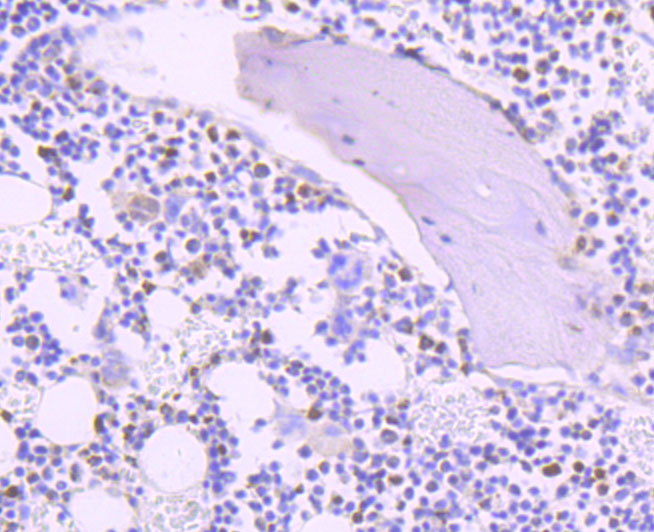
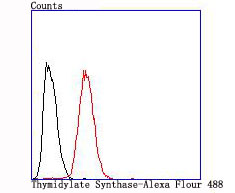
 Yes
Yes



